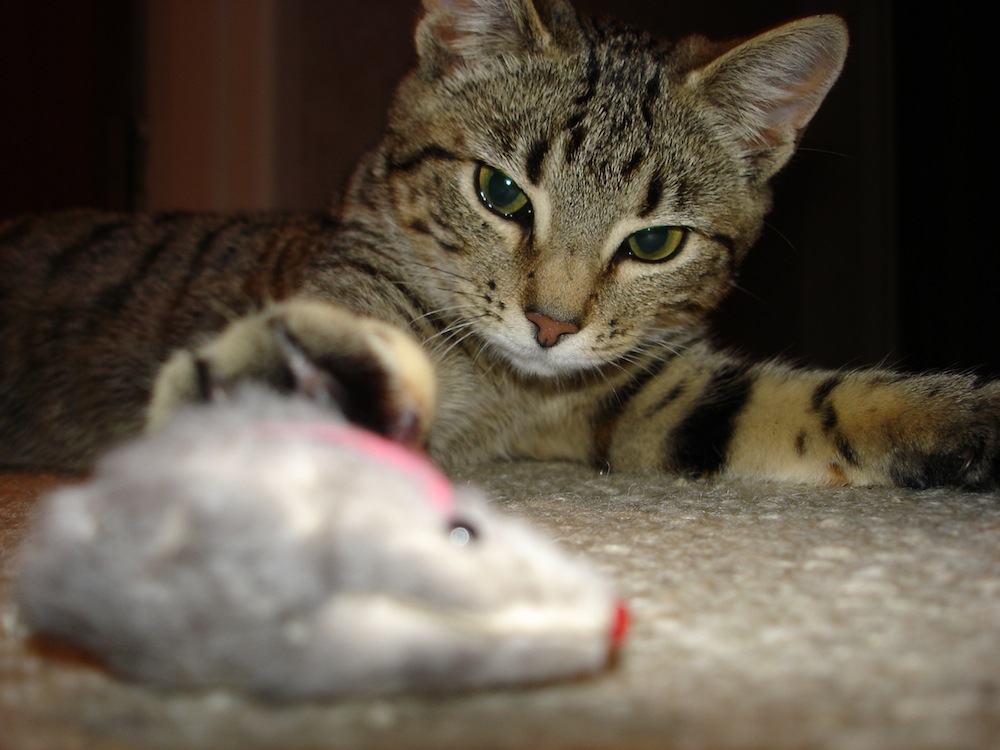Good News: Your Cat Won't Give You Brain Cancer

Cat owners are no more likely than people without pets to have brain cancer, a new study finds.
If you're wondering whether you should be relieved as a cat owner or confused as to what Fluffy the Persian has to do with brain cancer at all, we're here to help. The story starts last year, when researchers released a study in the journal Biology Letters finding that infection with a parasite called Toxoplasma gondii may be linked to brain cancer in humans.
T. gondii can live in a variety of mammals and often infects mice. But to reproduce, it needs to get into a cat's gut. It seems to do so by giving its mouse hosts an uncanny bravery around the smell of cat pee, presumably making it more likely that the mice get eaten.
Given cats' role as natural T. gondii hosts, the brain cancer finding naturally raised some concern over whether housecats might pass the parasite to humans, increasing brain cancer risk. T. gondii is also linked with neurosis, schizophrenia and suicide attempts.
Now, researchers at the University of Oxford led by epidemiologist Vicky Benson have analyzed a national cancer registry in the United Kingdom alongside a cohort of 626,454 middle-age women and found absolutely no link between cat ownership and brain cancer. The scientists report their results today (Aug. 21) in the journal Biology Letters.
Frederic Thomas of the University of Montreal, one of the researchers on the original T. gondii and brain cancer study, responded to the new findings in the same journal.
"This is an important finding because the popular press is drawn to the headline that pet cats are a health risk to their owners," Thomas and his colleagues wrote. Nevertheless, they said, the finding does not disprove a link between the parasite and brain tumors. Cat ownership does not strongly increase the risk of T. gondii infection, the researchers wrote. In fact, eating unwashed vegetables and undercooked meat is a much stronger risk factor.
Sign up for the Live Science daily newsletter now
Get the world’s most fascinating discoveries delivered straight to your inbox.
"[T]he study of Benson et al. should be reassuring to cat owners, but it does not test whether T. gondii affects risks of brain cancer," Thomas and his colleagues conclude.
Follow Stephanie Pappas on Twitter @sipappas or LiveScience @livescience. We're also on Facebook & Google+.

Stephanie Pappas is a contributing writer for Live Science, covering topics ranging from geoscience to archaeology to the human brain and behavior. She was previously a senior writer for Live Science but is now a freelancer based in Denver, Colorado, and regularly contributes to Scientific American and The Monitor, the monthly magazine of the American Psychological Association. Stephanie received a bachelor's degree in psychology from the University of South Carolina and a graduate certificate in science communication from the University of California, Santa Cruz.










